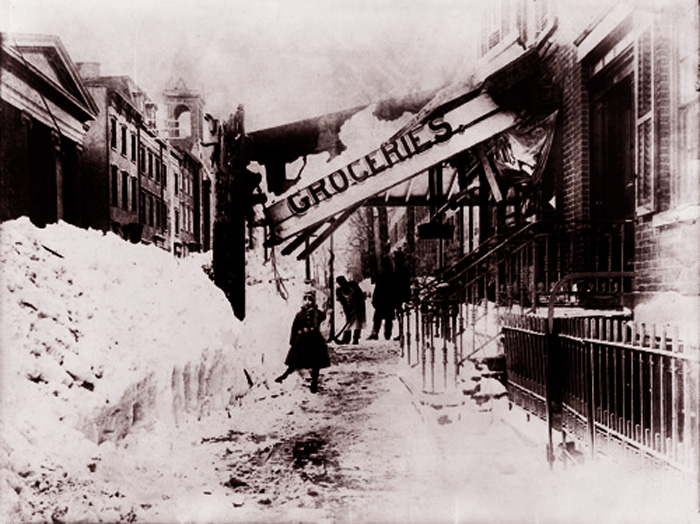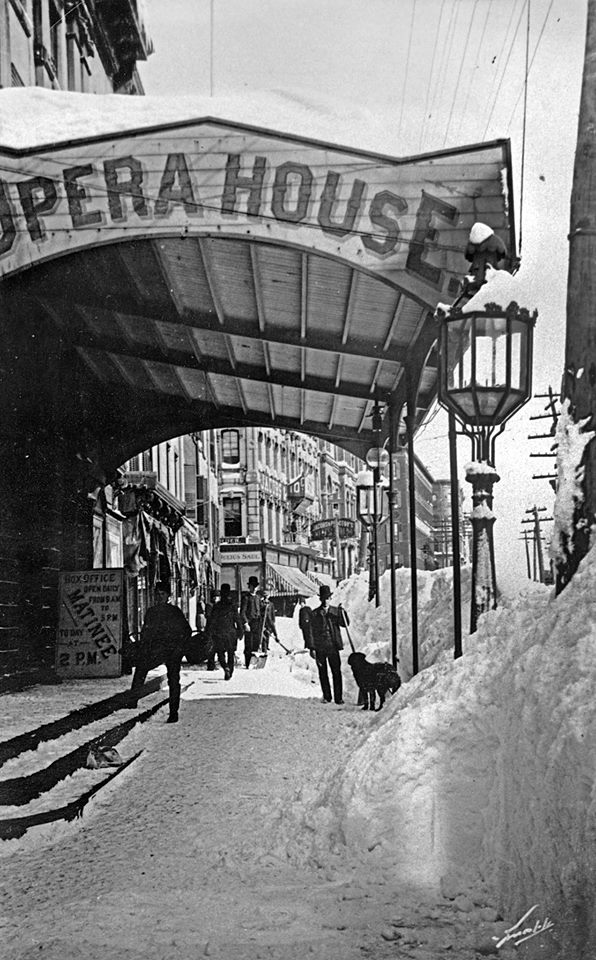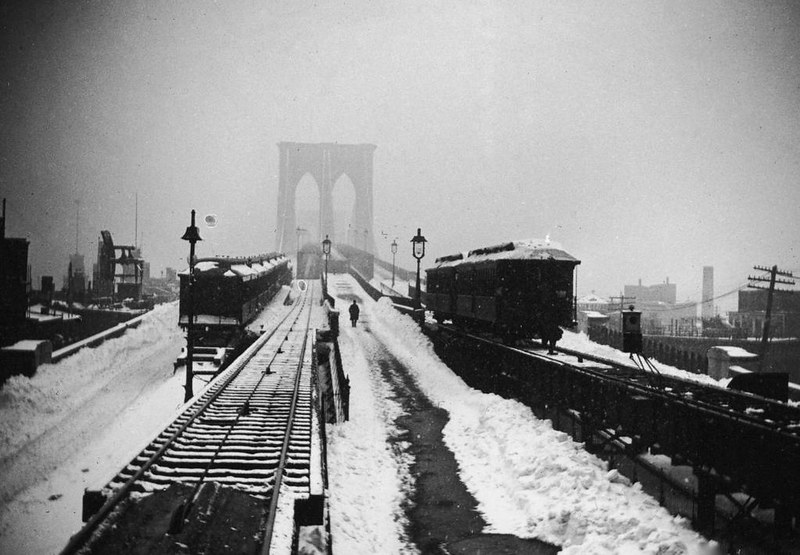This topic has been discussed to some extent (or in some forms) elsewhere, but I was considering it today again. Years ago I though of doing an essay about the subject of the world around Whitechapel in 1888, but I never finished working on it. Too much information more or less.
Among other things, it was the year of a U.S. Presidential election that ended giving the victory to the candidate with less popular votes due to advantages in votes he (Benjamin Harrison) had over incumbent Grover Cleveland in several states, giving Harrison the electoral college victory [this may sound all to familiar to us from 2000 and more currently in 2016 where Trump trumped Clinton that way]. It was also the year of the three emperors in Germany, where Kaiser Wilhelm I died at 91, his son Friedrich III reigned for three months before succumbing to throat cancer, and his grandson Wilhelm II took the throne. It was the year of the great "Blizzard of '88" that hit the northeastern U.S. On a personal note my great-grandfather Isaac married his wife Rebecca.
There were some notables who died that year: Bronson Alcott of Concord, Massachusetts (notable "transcendentalist" figure), and his more famous daughter the novelist Louisa May Alcott; Ex-Senator (and New York State Republican Party Boss) Roscoe Conkling (a victim of the great blizzard); Matthew Arnold, philosopher, writer, critic, and poet; American Civil War and Indian War figure, and General-in-Chief of the Armies, Philip Sheridan; U.S. Supreme Court Chief Justice Morrison Waite; German novelist ("Effie Brest") Theodore Fontane; Edward Lear; and (posthumously due to the notoriety of their demises), Mary Ann Nichol, Annie Chapman, Elizabeth Stride, Catherine Eddowes, and Mary Jane Kelly. I could also have added Emma Smith and Martha Turner. Also Montague John Druitt.
Ordinarily I wouldn't have brought it up but I find there was a name that cropped in my reading yesterday - I'll throw it out.
Field Marshall Lord Lucan.
This is Richard Bingham, Third Earl Lucan, the co-creator (with Lords Raglan, Airey, and Cardigan, and Lt. Nolan) of that masterpiece of military idiocy, the 1854 "Charge of the Light Brigade". Actually Lucan and Cardigan were at the tail end of the blame (Cardigan in charge of the actual Light Brigade, while Lucan was his superior officer - a relationship that their mutual dislike did not help - and they did not create the stupid orders: Raglan did). Lucan is better known today, outside of this blunder, as the ancestor of the more notorious Earl of Lucan who disappeared in 1974 after killing his children's nanny and who was only recently legally declared dead.
It comes as of some interest. Lucan's last actions in his career was to get his Field Marshal's baton in 1887 (as he approached his ninetieth year). And then he kept it until the day of his death - which was November 10, 1888!
The old soldier survived Mary Kelly by two days!!
It comes as a bit of a surprise also that (like his odd descendant) the 3rd Earl was involved in a murder case - but as a background figure, not a suspect. In 1872 his mistress, Madam Riel, was bludgeoned to death in her home (which the Earl paid for) on Park Lane, West End of London, by her servant Marguerite Dixblanc or Disblanc, who fled to Paris after the killing. Marguerite was brought back (by the later notoriously corrupt Detective Nathaniel Druscovitch) from Paris, stood trial, and was convicted but only got a heavy prison sentence. Milord the 3rd Earl was needed as a material witness for the Prosecution about the set-up of the household of his mistress, which was an embarrassment to him at the time but one that he could not avoid.
Interesting little slice of the history of the age, but it was the closeness of the death of milord to that of poor Mary that made me think a bit. Marguerite was still in prison in 1888, and she came from Belgium originally, not France, but Mary (if her stories were true at all) claimed she worked in Paris for awhile. Still she was there way after the events of 1872 were an unpleasant memory.
Hopefully this thread will engage some discussion.
Jeff
Among other things, it was the year of a U.S. Presidential election that ended giving the victory to the candidate with less popular votes due to advantages in votes he (Benjamin Harrison) had over incumbent Grover Cleveland in several states, giving Harrison the electoral college victory [this may sound all to familiar to us from 2000 and more currently in 2016 where Trump trumped Clinton that way]. It was also the year of the three emperors in Germany, where Kaiser Wilhelm I died at 91, his son Friedrich III reigned for three months before succumbing to throat cancer, and his grandson Wilhelm II took the throne. It was the year of the great "Blizzard of '88" that hit the northeastern U.S. On a personal note my great-grandfather Isaac married his wife Rebecca.
There were some notables who died that year: Bronson Alcott of Concord, Massachusetts (notable "transcendentalist" figure), and his more famous daughter the novelist Louisa May Alcott; Ex-Senator (and New York State Republican Party Boss) Roscoe Conkling (a victim of the great blizzard); Matthew Arnold, philosopher, writer, critic, and poet; American Civil War and Indian War figure, and General-in-Chief of the Armies, Philip Sheridan; U.S. Supreme Court Chief Justice Morrison Waite; German novelist ("Effie Brest") Theodore Fontane; Edward Lear; and (posthumously due to the notoriety of their demises), Mary Ann Nichol, Annie Chapman, Elizabeth Stride, Catherine Eddowes, and Mary Jane Kelly. I could also have added Emma Smith and Martha Turner. Also Montague John Druitt.
Ordinarily I wouldn't have brought it up but I find there was a name that cropped in my reading yesterday - I'll throw it out.
Field Marshall Lord Lucan.
This is Richard Bingham, Third Earl Lucan, the co-creator (with Lords Raglan, Airey, and Cardigan, and Lt. Nolan) of that masterpiece of military idiocy, the 1854 "Charge of the Light Brigade". Actually Lucan and Cardigan were at the tail end of the blame (Cardigan in charge of the actual Light Brigade, while Lucan was his superior officer - a relationship that their mutual dislike did not help - and they did not create the stupid orders: Raglan did). Lucan is better known today, outside of this blunder, as the ancestor of the more notorious Earl of Lucan who disappeared in 1974 after killing his children's nanny and who was only recently legally declared dead.
It comes as of some interest. Lucan's last actions in his career was to get his Field Marshal's baton in 1887 (as he approached his ninetieth year). And then he kept it until the day of his death - which was November 10, 1888!
The old soldier survived Mary Kelly by two days!!
It comes as a bit of a surprise also that (like his odd descendant) the 3rd Earl was involved in a murder case - but as a background figure, not a suspect. In 1872 his mistress, Madam Riel, was bludgeoned to death in her home (which the Earl paid for) on Park Lane, West End of London, by her servant Marguerite Dixblanc or Disblanc, who fled to Paris after the killing. Marguerite was brought back (by the later notoriously corrupt Detective Nathaniel Druscovitch) from Paris, stood trial, and was convicted but only got a heavy prison sentence. Milord the 3rd Earl was needed as a material witness for the Prosecution about the set-up of the household of his mistress, which was an embarrassment to him at the time but one that he could not avoid.
Interesting little slice of the history of the age, but it was the closeness of the death of milord to that of poor Mary that made me think a bit. Marguerite was still in prison in 1888, and she came from Belgium originally, not France, but Mary (if her stories were true at all) claimed she worked in Paris for awhile. Still she was there way after the events of 1872 were an unpleasant memory.
Hopefully this thread will engage some discussion.
Jeff










Comment